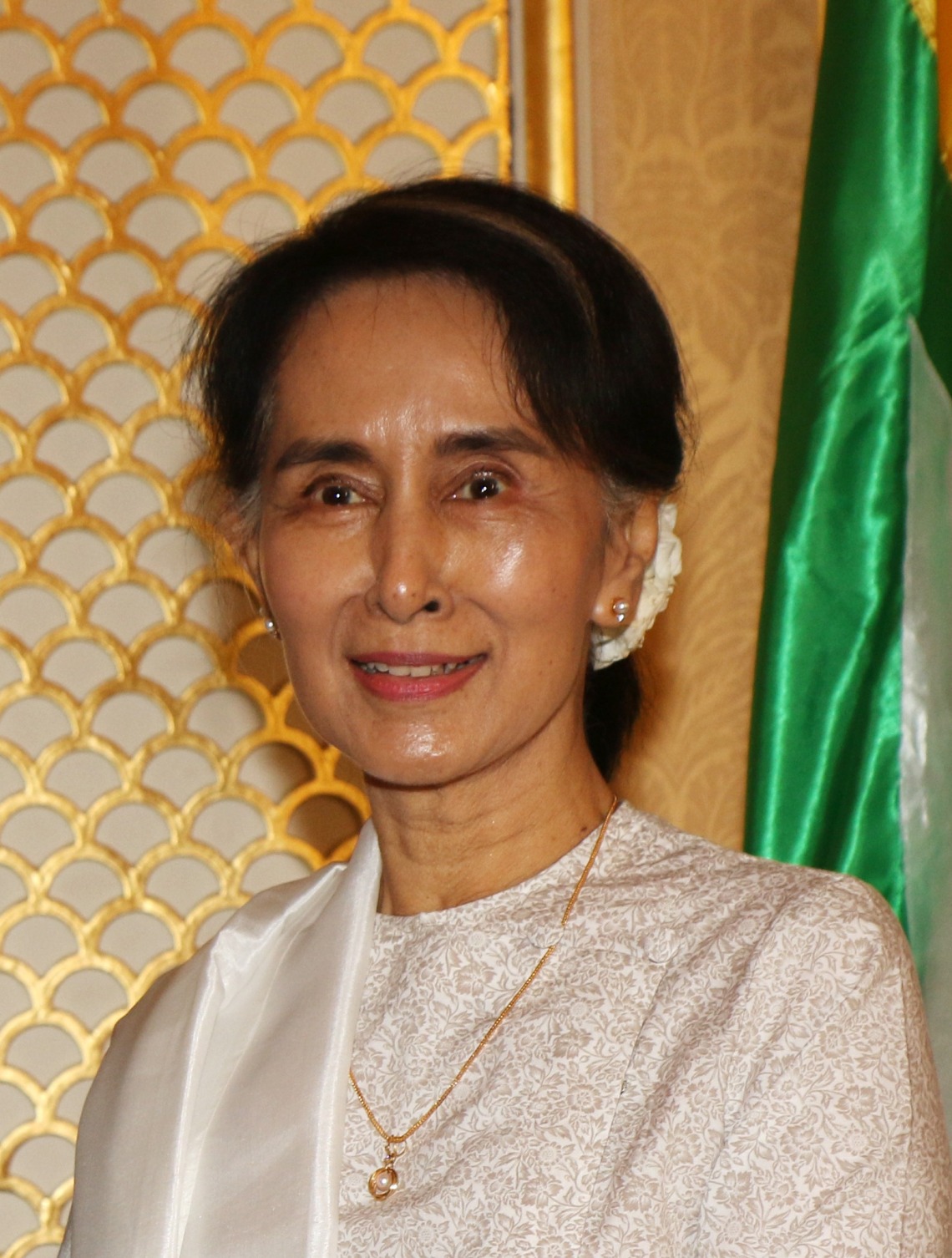 Since Aung San Suu Kyi assumed responsibility of leadership of the NLD (National League for Democracy) in 1988 she had, until recently, been able to bring a democratic government into power in Myanmar despite a landslide victory in the general election of 1990. The country’s history of instability has impacted on this as well as, possibly, her family’s pedigree which is likely to have impacted her. The most important factor of all, however, has been the dogged refusal of the military junta to relinquish power. Therefore, there are several factors that should come under consideration when discussing this subject.
Since Aung San Suu Kyi assumed responsibility of leadership of the NLD (National League for Democracy) in 1988 she had, until recently, been able to bring a democratic government into power in Myanmar despite a landslide victory in the general election of 1990. The country’s history of instability has impacted on this as well as, possibly, her family’s pedigree which is likely to have impacted her. The most important factor of all, however, has been the dogged refusal of the military junta to relinquish power. Therefore, there are several factors that should come under consideration when discussing this subject.
Burma had been at war with Britain as early as 1784 and had been occupied by Britain between the years 1824 and 1948. After Aung San Suu Kyi’s father, Aung San, won independence for the country in 1947 the country saw just twelve years as a democracy, with two separate military regimes ruling the country since 1962. These long periods of instability helped Aung San Suu Kyi decide to take on the task of leading Burma into a new democratic epoch.
Aung San Suu Kyi’s father was and still is revered almost as a martyr by most of the population for his role in gaining independence from Britain. The Making sense of the arts (2007) DVD suggests that his political ideals were influenced by the likes of Nehru, Sun Yat-sen, Voltaire and Marx. Her mother, Khin Kyi, served as a political figure during U Nu’s role as Prime Minister of a democratic Burma. Both parents were Buddhists (Stewart (1997)), as is she; this influence rubbed off on her as she was brought up with a peaceful childhood and has held a non-violent stance throughout her life. The legacy that her parents had left behind helped Suu Kyi make up her mind that she should lead Burma/Myanmar into a new era. Her parents’ history meant Suu Kyi came with a sparkling reputation and the military junta knew that she would be a force to be reckoned with.
General Ne Win successfully led a military coup of U Nu’s government in 1962 after previously serving as interim Prime Minister between 1958 and 1960. The military junta remained in power until 2015. The junta ruled the country with an iron-fist, striking fear into the country’s citizens. t has faced protest from the start, on 7th July 1962 the government dynamited the Rangoon University Student Union building to prevent students from protesting. The most notorious, however, of the government’s attempts t quell protesting is known as the 8888 Uprising in which ‘at least 1,000 [non-violent, protesting] civilians’ (Aung-Thwin (1989)) were killed by the junta. The brutality of the junta made it incredibly difficult for Aung San Suu Kyi to gain a foothold n her fight for democracy, particularly as she refused to combat the junta’s violence with violence of her own.
Despite being placed under house in 1989 (along with NLD co-founder Win Tin); and the continuation of threats, violence and intimidation used by the junta to oppress the population, Aung San Suu Kyi and the NLD still managed to garner massive support to comprehensively win the 1990 Myanmar general election. Of the 492 contested seats, the NLD won a massive 392 (80.8%). It is safe to assume that without the threats and violence this majority would have been considerably higher. Despite this clear show of support the junta dismissed the wishes of the people and maintained power. But Aung San Suu Kyi and the NLD have support from further afield: Suu Kyi was recognised internationally in 1991, with the awarding of the Nobel Peace Prize. The military junta have therefore, not only had to fight off domestic protestations but also those from abroad. Politicians across the globe pleaded with the junta to step aside and hand over power to the NLD.
For years, globally recognised human-rights charity, Amnesty International fought for the release of Aung San Suu Kyi as well as ‘at least 2,200 [other] political prisoners currently locked away in Burma’ (Amnesty International (2009)). The junta had a massive effect on Aung San Suu Kyi’s influence over domestic politics by putting her under house arrest for over fifteen years and severely limiting her travel.
A variety of reasons have impacted on Aung San Suu Kyi’s struggle for democracy. The most important reason, however, has been the junta’s staunch stubbornness, violence, threats and unwillingness to listen to the majority of their people, which prevented Aung San Suu Kyi from delivering democracy to her country. The continued house arrest of Aung San Suu Kyi also prevented her from reaching the populace and maintaining support.
References:
- Making sense of the arts (2007) DVD, The Open University
- Stewart, W. (1997) ‘Aung San Suu Kyi: fearless voice of Burma’, pp. 15 and 26
- Aung-Thwin, M. (1989) ‘Foreign Affairs: Burmese Days’
- Amnesty International (2009)
